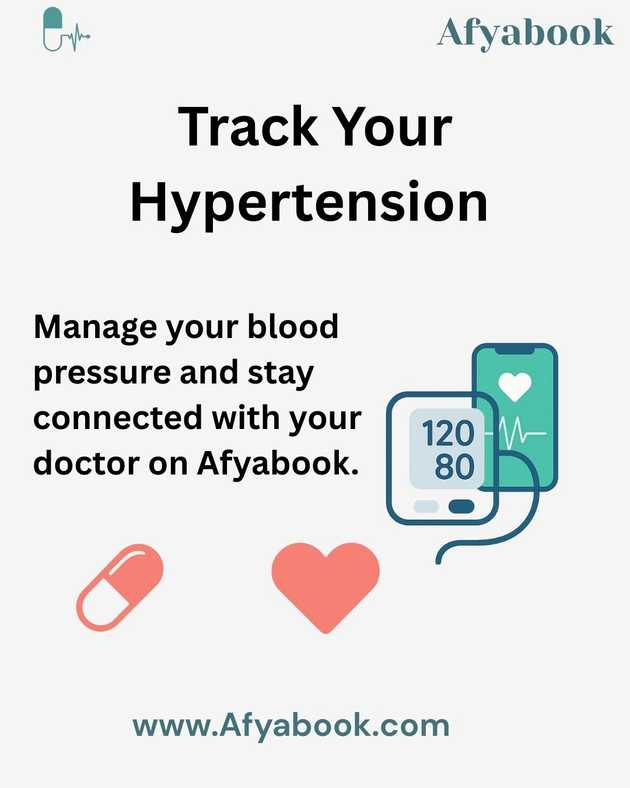Why Hypertension Management Matters
Hypertension affects millions of people globally, yet many are unaware they have it. Regular monitoring helps detect risks early, guide lifestyle changes, and ensure treatments are working. Without this, hypertension often goes unnoticed until serious health issues develop.
How Afyabook Helps You Manage Hypertension
1. Measure and Track Blood Pressure
With Afyabook, patients can easily log their daily blood pressure readings.https://www.afyabook.com/userprofile/ .This creates a clear history of results, helping both patients and doctors see patterns over time. Afyabook makes monitoring simple and consistent no more relying on memory or scattered notes.
2. Remote Patient Monitoring with Doctors
Afyabook connects patients directly with healthcare professionals. Doctors can review readings in real-time, detect changes, and provide timely advice or medication adjustments. This continuous care reduces the need for frequent clinic visits while ensuring close monitoring.
3. Medication & Lifestyle Reminders
The platform sends gentle reminders for medication, check-ups, and lifestyle habits such as hydration, exercise, and diet. This support helps patients stick to their treatment plan and avoid missed doses. https://www.afyabook.com/userprofile/
4. Virtual Consultations
Through Afyabook, patients can schedule online consultations with doctors. This means quick access to expert advice without the inconvenience of long hospital queues. https://www.afyabook.com/doctors/
5. Empowering Patients Through Data
By collecting and sharing health data, Afyabook helps patients understand their blood pressure trends. This empowers individuals to take control of their health while giving doctors reliable information for more personalized care.
Why Digital Tools Like Afyabook Make a Difference
- Early Detection: Continuous monitoring identifies risks before complications arise.
- Convenience: Patients manage their health from home or work.
- Better Outcomes: Doctors get accurate data for treatment adjustments.
- Patient Engagement: Individuals become active participants in their health journey.
